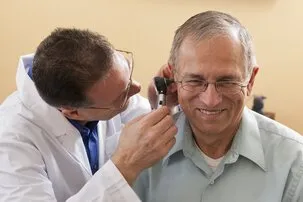An audiologist is a healthcare professional who specializes in the diagnosis, treatment, and management of hearing and balance disorders. These highly trained individuals work primarily with patients who have hearing loss, tinnitus, or other related conditions, and they play a crucial role in helping people improve their quality of life by addressing their hearing and balance issues.
Audiologists work in a variety of settings, including hospitals, clinics, private practices, and educational institutions. They are responsible for conducting comprehensive evaluations of patients' hearing and balance function, using a range of specialized equipment and techniques to assess the nature and extent of their conditions. Based on their findings, audiologists develop personalized treatment plans that may include hearing aids, assistive listening devices, or other interventions to help patients better manage their auditory and balance challenges.
In addition to providing direct patient care, audiologists also play a key role in educating the public about hearing health and promoting preventive measures to reduce the risk of hearing loss. They may also collaborate with other healthcare professionals, such as otolaryngologists, speech-language pathologists, and physical therapists, to ensure that patients receive comprehensive care for their hearing and balance needs.
To become an audiologist, individuals typically need to complete a Doctor of Audiology (Au.D.) program, which includes extensive clinical training and coursework in areas such as anatomy, physiology, acoustics, and audiological assessment. Upon completing their education, audiologists must obtain state licensure to practice and may also pursue additional certifications in specialized areas of audiology.
Overall, audiologists play a vital role in helping individuals of all ages effectively manage their hearing and balance issues, allowing them to lead fuller, more connected lives. Their expertise and dedication to improving patients' auditory and balance function make them essential members of the healthcare community.

